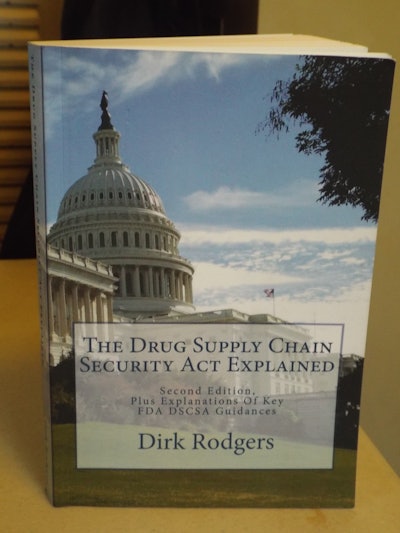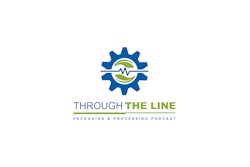
Experts recommend conference attendees try to take home as many “nuggets” of knowledge from a particular event as possible to improve their respective businesses.
Multiple nuggets of intel also reside within Dirk Rodgers’ book, “The Drug Supply Chain Security Act Explained, Second Edition—Plus Explanations OF Key FDA DSCSA Guidances.” Among them are the following:
• “Manufacturers and repackagers will eventually be required to affix or imprint a product identifier on their packages, but not until Nov. 27, 2017 and Nov. 27, 2018, respectively.”
• “The cost of collecting aggregation data at high levels of accuracy was an unexpected expense for most manufacturers.”
• “Check Section 581(10), [for] the definition of ‘manufacturer,’ to determine if you are considered the DSCSA manufacturer.”
• “The definition of PACKAGE determines what needs to be serialized elsewhere in the text. In general, a ‘package’ is the smallest individual saleable unit of product for distribution by a manufacturer or repackager that is intended by the manufacturer for ultimate sale to the dispenser. The key here is the phrase ‘intended by the manufacturer.’”
• “The DSCSA requires the FDA to conduct at least five topical public meetings between now and about 2021 to collect stakeholder input on topics that will help the FDA define how the so-called ‘Enhanced Drug Distribution Security’ phase will work. That phase is to begin in November of 2023, which is quite a few years from now, but the law constrains details about how that phase is to work.”
Rodgers’ book paints a picture of what DSCSA’s future may look like for stakeholders throughout the pharmaceutical supply chain, from manufacturer to wholesale distributor to dispenser to repackager to third-party logistics provider.
As one of the book’s back-cover reviewers says, “Dirk Rodgers has an unparalleled knowledge of federal track-and-trace legislation.” Healthcare Packaging readers will recognize his name and expertise as a former columnist with this publication.
Rodgers is the founder of RxTrace.com, which covers the pharmaceutical supply chain, standards and regulatory compliance. This book provides more than two-dozen RxTrace essays.
Not to be overlooked, the book’s thorough appendix not only cites the full text of the DSCSA, but also provides definitions of key terms ranging from affiliate to wholesale distributor. Too often, assumptions are made about industry terms that may be used differently by different people, which can present confusion. These definitions clarify critical terminologies.
Rodgers’ 351-page book concludes by printing a coupon for free three-month access to RxTrace. But within the pages of this book readers will gain wisdom and insights into serialization, arguably among the most pressing issue of our time in the pharmaceutical industry. Knowing DSCSA more thoroughly, complying with the law and successfully implementing serialization in your packaging process ultimately aims to better the healthcare system—and benefit the patients served by the pharmaceutical industry.
The book is available from Amazon.com and CreateSpace.com, and Amazon company. Contact Dirk Rodgers at [email protected]






















